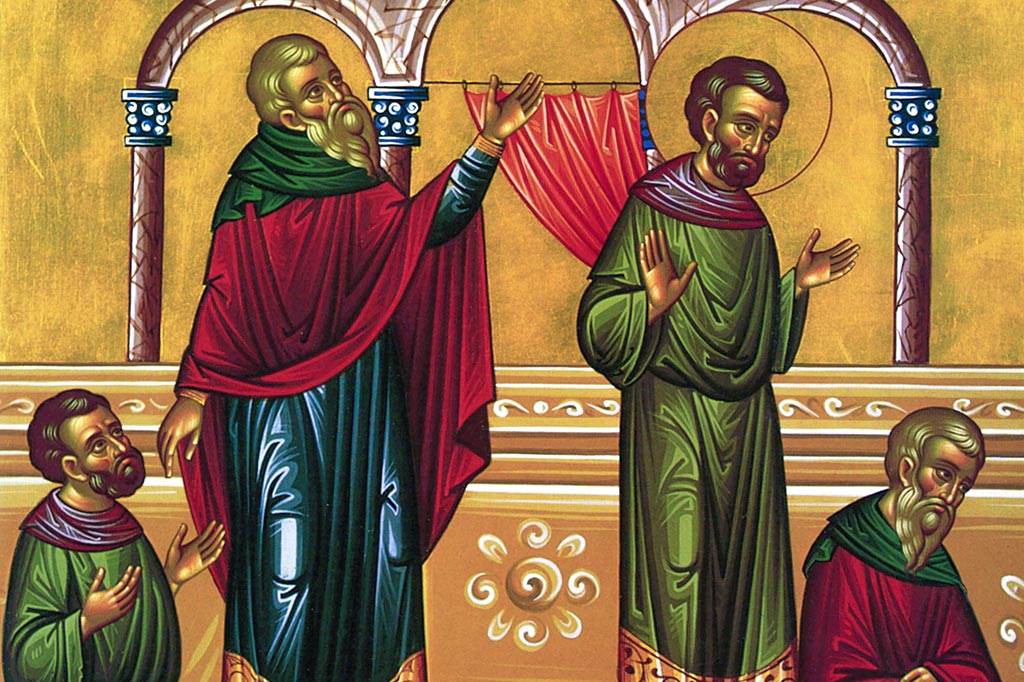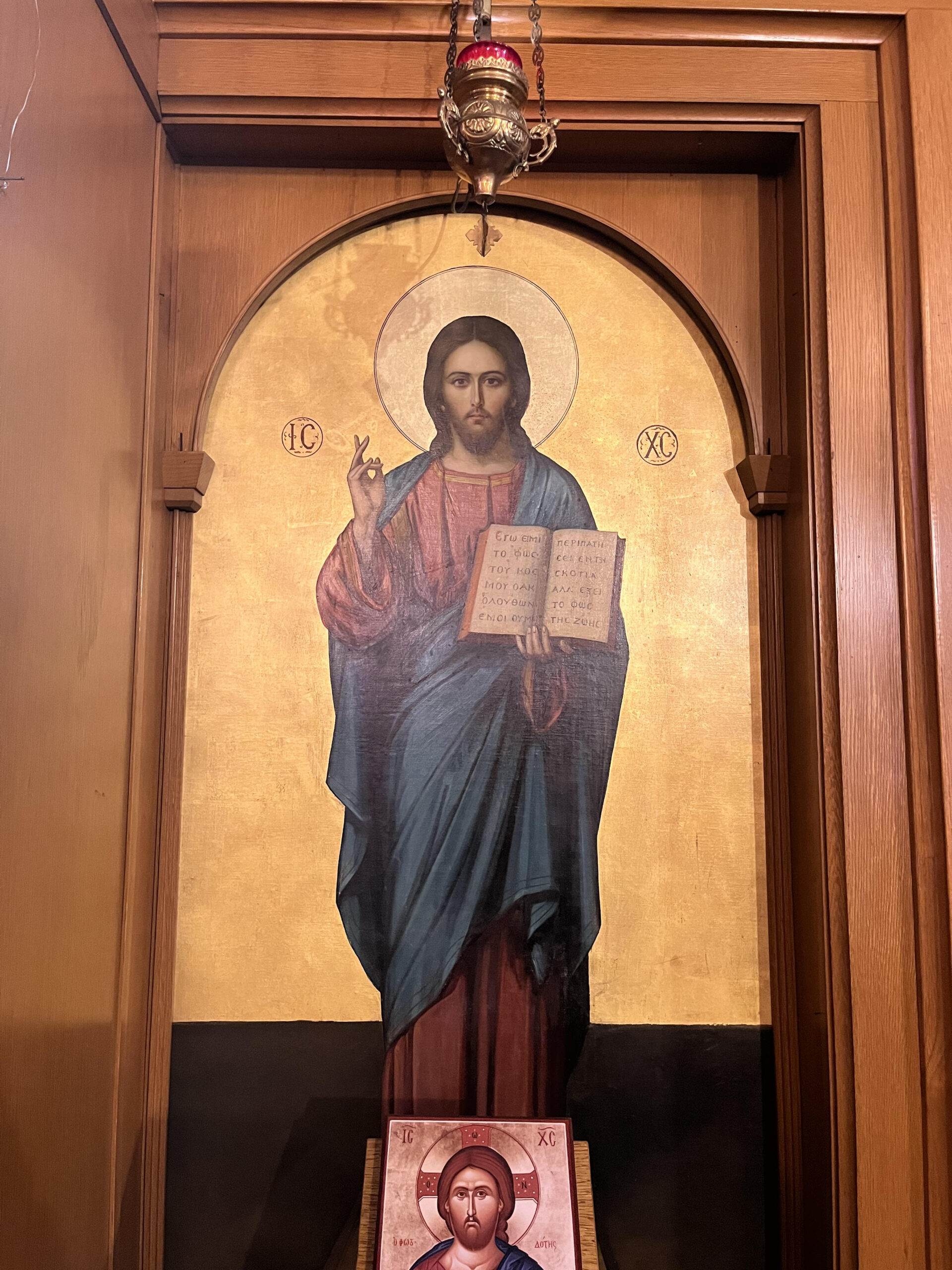Now I would remind you, brethren, in what terms I preached to you the gospel, which you received, in which you stand, by which you are saved, if you hold it fast—unless you believed in vain. For I delivered to you as of first importance what I also received, that Christ died for our sins in accordance with the scriptures, that He was buried, that He was raised on the third day in accordance with the scriptures, and that He appeared to Cephas, then to the twelve. Then He appeared to more than five hundred brethren at one time, most of whom are still alive, though some have fallen asleep. Then He appeared to James, then to all the apostles. Last of all, as to one untimely born, He appeared also to me. For I am the least of the apostles, unfit to be called an apostle, because I persecuted the church of God. But by the grace of God I am what I am, and His grace toward me was not in vain. On the contrary, I worked harder than any of them, though it was not I, but the grace of God which is with me. Whether then it was I or they, so we preach and so you believed. I Corinthians 15:1-11 (Epistle from the Twelfth Sunday)
A cursory glance over some of the Epistles of St. Paul might make the reader think that he is somewhat arrogant. After all, who is this one man, who had been a great sinner, persecuting the early church, to be writing to us in such a manner? The fact is that we are all sinners who are capable of repentance. And Saint Paul made as big of a repentance as anyone—he went from church persecutor to church leader.
He took his role very seriously. He preached with passion and zeal. Today, he would probably be criticized as crazy or “off the deep end.” But at his time, his charisma and enthusiasm helped a new church take root in many cities. Because his charisma was contagious.
In today’s Epistle, he reminds us almost in a summary way, how he preached the Gospel. He warns people to hold fast to the Gospel, for it is the message of the Gospel and our holding on to it with faith that will save us. And a large part of our salvation will be based on putting what we have heard into action. Because people didn’t read, St. Paul was very succinct in summarizing the message of the Gospel in a few short verses—that Christ died for our sins, was buried, was raised from the dead and that He appeared to many people. His reference to “according to the Scriptures”does not refer to the New Testament, which had not been put together yet, but refers to Jesus being the Christ and fulfilling the Old Testament Scriptures concerning the Messiah.
He references Jesus appearing “To more than five hundred brethren at one time, many of whom are still alive,” to say that there were still eyewitnesses to His post-Resurrection appearances that were alive and could testify first-hand what they saw. He wrote about Jesus appearing to all the Apostles, and lastly how He appeared to St. Paul, on the road to Damascus where he was converted.
Saint Paul owns up to his own shortcomings, admitting his sin of persecuting the church. He calls himself unfit to be an Apostle. However, he accepts God’s grace in forgiving his sins and takes that gift and makes something of it—he becomes the greatest of the Apostles. There are two lessons here. The first is that when we receive God’s grace of forgiveness, through the sacrament of confession, we are supposed to be able to forgive ourselves also. There are many times when people have said to me “I can never forgive myself.” This is not correct. If God can forgive us, and we believe that God can forgive us, then we must forgive ourselves, since He is greater than us. The second lesson here is that in order to receive the grace of forgiveness from God, one must show a sincere repentance. And repentance means change. We aren’t supposed to be so moved by the magnanimous forgiveness of God that we do nothing. We are supposed to be moved to repent of our sins and to take action in furthering the message of God, even though we have the stain of sin.
Saint Paul says that God’s grace towards him was not in vain, that he is doing something with that grace.
And while Saint Paul may sound a little boastful about his work ethic, he is quick to point out that it is the grace of God at work in him. He says that it doesn’t matter which disciples helped convert their hearts, only that it is important that our hearts are converted to Christ.
The grace of God can work through each of us if we allow it to. It is not only priests that have the ability or the responsibility to impart Christ’s message to others. We each have an ability to do that, and we each have a responsibility as well. God can work through each of us, despite our sins and despite our limitations (be they intellect, skill, etc.) to bring His message forward to the nations. Thus, we are supposed to accept God’s grace and let us work through us, to give glory to Him through our own lives and to bring others to Him as well, through our efforts and example.
When You had physically tasted death, O Lord, You curtailed its bitterness by Your resurrection, and You strengthened humanity against it, by reversing the failure related to the primal curse, O Defender of our life. Glory to You, O Lord. (Second Resurrectional Kathisma of the first set, Third Tone, Trans. by Fr. Seraphim Dedes)
Let God work through you today!

